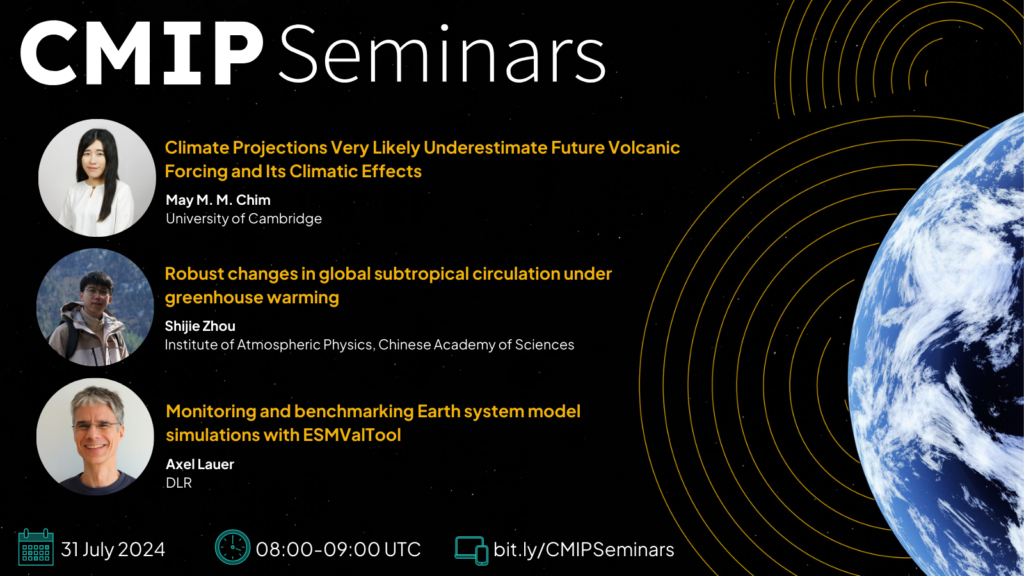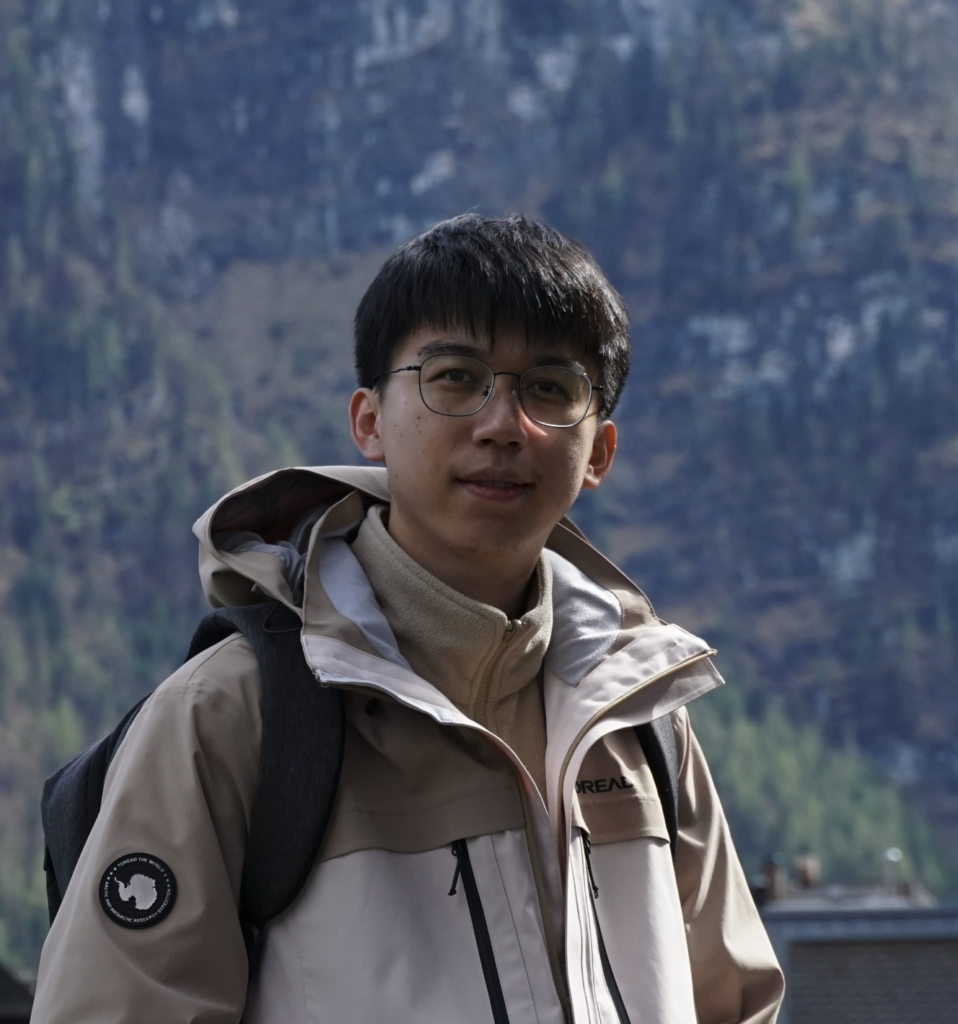
31 July, 2024 @ 08:00 – 09:00 UTC
Fourth session of the CMIP Seminar Series.

Registration
Click the button below to register. We’ll send out information on how to attend the seminars to this list a few hours before the event starts. Note that, if you registered for a previous event, you are already registered for all future events.
Speakers

May M. M. Chim PhD Student, Centre for Atmospheric Science, University of Cambridge
Title: Climate Projections Very Likely Underestimate Future Volcanic Forcing and Its Climatic Effects
Abstract: Standard climate projections represent future volcanic eruptions by a constant forcing inferred from 1850 to 2014 volcanic forcing. Using the latest ice-core and satellite records to design stochastic eruption scenarios, we show that there is a 95% probability that explosive eruptions could emit more sulfur dioxide (SO2) into the stratosphere over 2015–2100 than current standard climate projections (i.e., ScenarioMIP). Our simulations using the UK Earth System Model with interactive stratospheric aerosols show that for a median future eruption scenario, the 2015–2100 average global-mean stratospheric aerosol optical depth (SAOD) is double that used in ScenarioMIP, with small-magnitude eruptions (<3 Tg of SO2) contributing 50% to SAOD perturbations. We show that volcanic effects on large-scale climate indicators, including global surface temperature, sea level and sea ice extent, are underestimated in ScenarioMIP because current climate projections do not fully account for the recurrence frequency of volcanic eruptions of different magnitudes.

Shijie Zhou Associate professor, Institute of Atmospheric Physics, Chinese Academy of Sciences
Title: Robust changes in global subtropical circulation under greenhouse warming
Abstract: The lower tropospheric subtropical circulation (SC) is characterized by monsoons and subtropical highs, playing an important role in global teleconnections and climate variability. The SC changes in a warmer climate are influenced by complex and region-specific mechanisms, resulting in uneven projections worldwide. Here, we present a method to quantify the overall intensity change in global SC, revealing a robust weakening across CMIP6 models. The weakening is primarily caused by global-mean surface warming, and partly counteracted by the direct CO2 effect. The direct CO2 effect is apparent in the transient response but is eventually dominated by the surface warming effect in a slow response. The distinct response timescales to global-mean warming and direct CO2 radiative forcing can well explain the time-varying SC changes in other CO2 emission scenarios. The declined SC implies a contracted monsoon range and drying at its boundary with arid regions under CO2-induced global warming.

Axel Lauer Research scientist, DLR
Title: Monitoring and benchmarking Earth system model simulations with ESMValTool
Abstract: Earth system models are important tools to improve our understanding of current climate and to project climate change. Particularly during the model development phase, it is important to continuously monitor how well the historical climate is reproduced and to systematically analyze, evaluate, understand, and document possible shortcomings. Here, new features of the software package ESMValTool (Earth System Model Evaluation Tool) are presented that allow for comparing and visualizing a model’s performance in reproducing observations within the context of other climate models in an easy and user-friendly way. The aim is to help model developers to assess and monitor their simulations more efficiently.
Interested in speaking at a seminar? Let us know by clicking the button below.
Recording
Shijie Zhou (Institute of Atmospheric Physics): Robust changes in global subtropical circulation under greenhouse warming
